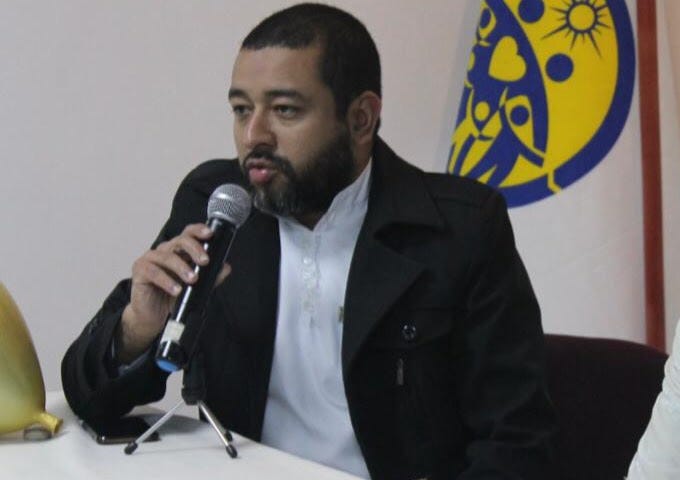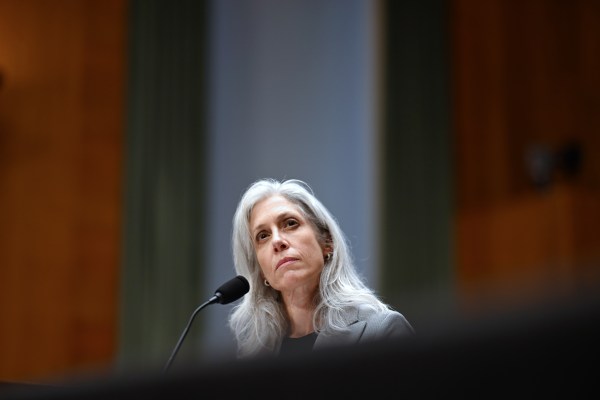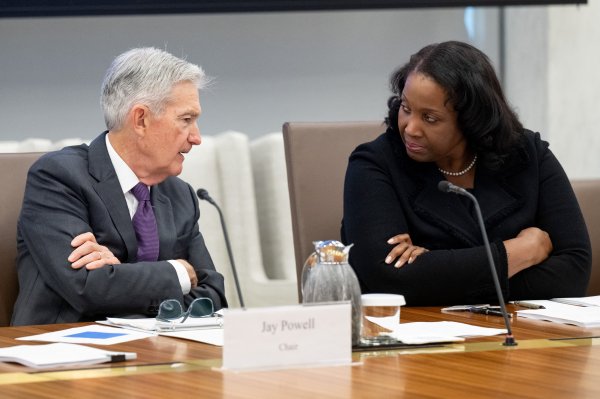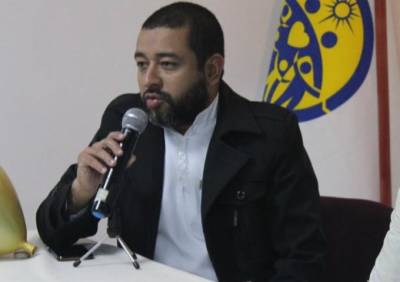Colombians will vote to elect a new parliament on Sunday, two months before they will choose a new president. That might not be a big story for most Americans, but it’s worth paying attention to because of what it says about Iran’s intentions in South America. This year, the mullahs have their own man on the legislative ballot.
Meet Marlon Cantillo Borrero, No. 82 on the Senate list for the Fuerza Ciudadana (or Citizen’s Force). Fuerza Ciudadana is a left-wing political party closely aligned with former Marxist guerrilla and left-wing presidential candidate Gustavo Petro. The nature of the Colombian Senate’s electoral system—a combination of pure proportionality and the right to choose individual candidates—means that if Cantillo musters enough personal support, he could become senator. Getting a senator elected in Colombia, possibly the U.S. closest ally in the region, would be a game changer.
Cantillo is a graduate of Iran’s Al Mustafa International University, a religious seminar based in Iran’s city of Qom that opened its doors in 2007 with the specific mission of proselytizing the non-Shiite, non-Muslim world and catering to converts in their native language. If Cantillo were elected, the Tehran regime would have a loyal advocate in Colombia’s next parliament.
Al Mustafa is one of Iran’s main vectors to export its revolutionary brand of Shiite Islam. Its key role in regime efforts to indoctrinate and radicalize its pupils, alongside its active training of Shi’a militias Iran deployed in Syria, earned it U.S. sanctions in December 2020.
Thanks to robust state funding ($80 million per year) since Al Mustafa launched its operations, it has trained tens of thousands of students, including numerous Latin Americans. Many students go beyond basic indoctrination and become ordained Shiite clerics. Iran’s goal: train a cadre of native speaker propagandists with a deep understanding of the culture in which they operate.
Upon returning home, Al Mustafa’s graduates support Iran’s main political goal in Latin America: to turn the Western Hemisphere into a hotbed of anti-Americanism and a forward operating base for Iran.
Exporting the Islamic revolution has been a key goal of the Iranian regime ever since it toppled the shah in 1979. Latin America became an early target because Iran’s clerical leadership viewed the region as a fertile ground for the spread of anti-American ideology. During the past four decades, Iran has patiently pursued the goal of spreading its message across the Western Hemisphere and leveraged the resulting support in pursuit of its political goals, with Al Mustafa leading the way.
To expand its influence, Iran has developed a missionary network built on mosques, cultural centers, educational institutions, media outlets, and publishing houses, which it has sustained with both itinerant and resident clerics either from Iran or trained in Iran. This network has run in parallel with official diplomatic relations managed through embassies and other bilateral contacts. It has thrived both in countries whose governments, like the Maduro regime in Venezuela, are allies of Iran, and in places like Colombia where the government is closely aligned with the United States.
It would not be the first time Iran has tried to get a protégé elected—a sign that this is a strategy, not happenstance. In 2009, the Al Mustafa network recruited and converted a Peruvian national, Edwar Quiroga Vargas, who at the time was a radical left-wing, Castro-Chavista activist in southern Peru. Quiroga traveled to Iran, converted, returned to his native Apurimac region, and in 2010 sought to run for office as regional president. He failed. Nevertheless, Quiroga, a virulent antisemite, remains active in Peru’s politics and has established an Islamic Center in his native Abancay, radicalizing numerous local youth in the process.
Cantillo is no more moderate in his views—his most admired leader, as his electoral profile states, is Iran’s supreme leader, Ali Khamenei. Yet he appears more disciplined than Quiroga—Cantillo has mostly expunged his social media of blatant references to his Iranian sympathies and his campaign has focused on domestic social issues. He can also count on a more sophisticated Iranian support infrastructure, which the Iranians patiently laid out in Colombia over decades, than his mercurial Peruvian counterpart. As a result, Colombians have barely noticed that Iran is trying to insert one of its proselytized, radical converts into their Senate.
How did Cantillo make it so far? He studied in Iran and returned to lead the Casa Cultural Islamica Ahlul Bayt, an Iranian-backed cultural center and mosque in Bogotá, Colombia’s capital, a decade ago. Information available on the Iranian cultural center’s social media account shows Borrero to be frequently engaged in interfaith dialogue and outreach, all the while strongly identifying with Iran’s regime. His center, meanwhile, continues to act as a megaphone for Iranian propaganda, hosting Al Mustafa itinerant lecturers and clerics and giving them a base to continue their recruitment efforts in Latin America.
Regardless of whether Cantillo is elected, the Biden administration should begin paying more attention to Iranian influence operations in Latin America, including especially the ones run by Al Mustafa, and understand that Iran is now capable of fielding native politicians with a chance of getting elected. Washington has the power (though not always the will) to prevent Iranian officials from coming to the U.S. Barring an elected official from an allied country is a different story.
Emanuele Ottolenghi is a senior fellow at the Foundation for Defense of Democracies, a Washington, D.C., non-partisan research institute focused on national security and foreign policy. Follow him on Twitter @eottolenghi.






Please note that we at The Dispatch hold ourselves, our work, and our commenters to a higher standard than other places on the internet. We welcome comments that foster genuine debate or discussion—including comments critical of us or our work—but responses that include ad hominem attacks on fellow Dispatch members or are intended to stoke fear and anger may be moderated.
With your membership, you only have the ability to comment on The Morning Dispatch articles. Consider upgrading to join the conversation everywhere.